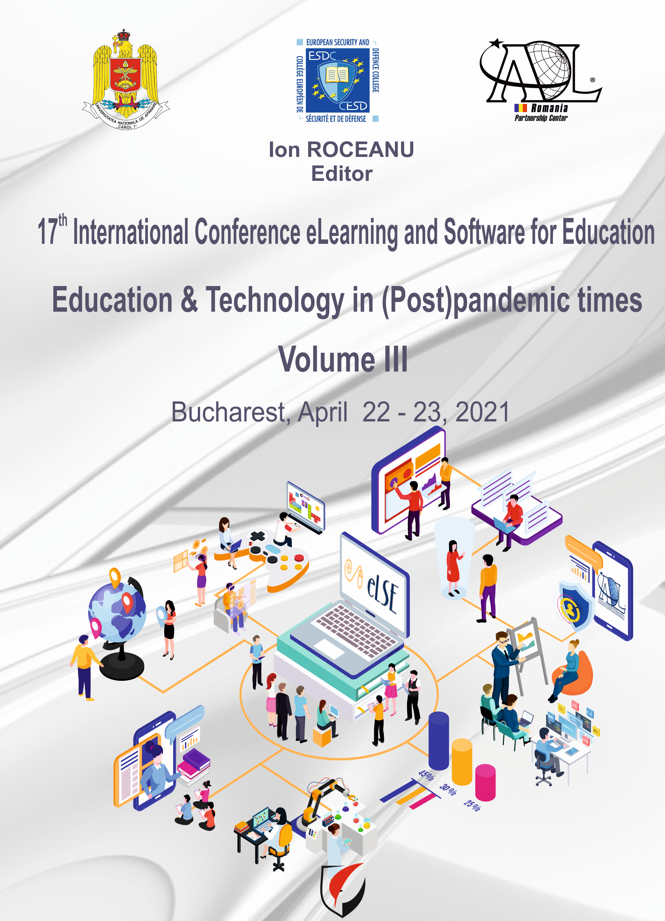PANDEMIC STUDIES: STUDENTS’ VIEWS ON STUDYING ROMANIAN AS A FOREIGN LANGUAGE ONLINE
PANDEMIC STUDIES: STUDENTS’ VIEWS ON STUDYING ROMANIAN AS A FOREIGN LANGUAGE ONLINE
Author(s): Cristina Mihaela NistorSubject(s): Foreign languages learning, Health and medicine and law, Distance learning / e-learning
Published by: Carol I National Defence University Publishing House
Keywords: COVID-19 pandemic; Romanian as a Foreign Language; online learning;
Summary/Abstract: The paper is the result of the author’s studies and research conducted on the topic of online learning during and after the lockdown period in Romania, with all the complications that have been triggered off by the recent COVID-19 pandemic. The special focus of the study is on the way students that have studied or are currently studying Romanian as a Foreign Language (RFL) at the Politehnica University in Bucharest cope with online classes. Their previous experience as online students may also be relevant for their academic progress, and one of the questions is about the platforms that seem more familiar/friendly to them. Since each student may perceive a stressful situation in their own particular way, and their learning preferences may differ significantly, the study here pays more attention to the students’ personal stand in the matter, as well as to the reasons they provide for their learning choices, than to mere statistics. That is why the questionnaire that has been distributed and then answered by the respective students may be considered to be the tool for gathering mainly qualitative data, whilst the quantitative data generated by the counting of the answers for/against a choice have been considered less relevant under the current circumstances. The author has intended this research as the starting point of a series of studies that may lead to a better understanding of the students’ learning preferences, with the ultimate goal of both getting an insight into students’ psychology and improving teaching methods. The conclusions of the study leave room for further analysis of the pandemic studies topic, especially since we are (still) experiencing ways and means to deal with teaching/learning effectively in the online version of both education and life.
Journal: Conference proceedings of »eLearning and Software for Education« (eLSE)
- Issue Year: 17/2021
- Issue No: 03
- Page Range: 49-54
- Page Count: 6
- Language: English

